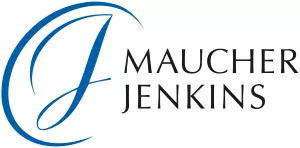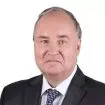- within Media, Telecoms, IT, Entertainment and Technology topic(s)
- with readers working within the Media & Information and Pharmaceuticals & BioTech industries
On 19 December 2023, the Federal Patent Court declared the German part of the European patent EP 1 857 122 B1 (please see here) of CureVac of Tübingen invalid following an action for revocation brought by BioNTech from Mainz. This means that the patent is ab initio invalid for the German territory, with retroactive effect from the outset.
However, the judgement is not yet legally binding. CureVac (the company works together with Glaxo Smithkline (GSK)) has already announced that it will appeal to the Federal Court of Justice (second instance).
At the same time, infringement proceedings are pending in Düsseldorf in which CureVac is claiming damages from BioNTech, which is collaborating with Pfizer, for the infringement of its patent (and a number of other property rights). Seven other property rights (patents and utility models) of CureVac are also the subject of disputes with BioNTech. CureVac's aim is to claim a share of BioNTech's billions in revenue from sales of the Covid-19 vaccine Comirnaty® as compensation for the use of its patent teaching. This would help to consolidate the financial situation of the Tübingen-based company - CureVac itself had failed with clinical trials of its own vaccine candidate against Covid-19 and was unable to bring its own vaccine to market. It is possible that the Düsseldorf Regional Court, which is responsible for the infringement proceedings and had suspended a hearing on this until the decision on the nullity proceedings is clear and postponed it to 28 December 2023, will postpone the hearing again or already decide on non-infringement on the basis of the first-instance nullity judgement.
In the wake of the ruling, the share price of CureVac, which has not yet generated any revenue from product sales, fell by up to 40% on 19 December 2023.
For background on mRNA vaccines, please see here.
The following should be noted regarding the background to the lawsuits and proceedings: In Germany, infringement proceedings are heard before certain statutory regional courts ("Landgerichte") as the first instance and then, if necessary, in the second instance before higher regional courts ("Oberlandesgerichte") and, in the case of an appeal, as the third instance and only with regard to the examination of the correct application of the law before the Federal Supreme Court ("Bundesgerichtshof"). In contrast, the validity of patents is examined exclusively in separate court proceedings before the Federal Patent Court in Munich in so-called nullity proceedings and, in the case of an appeal, in the second instance before the Federal Court of Justice, which also examines the case as a court of fact. This is referred to as bifurcation ("Zweizügigkeit") of the proceedings or the separation principle ("Trennungsprinzip") - infringement and nullity proceedings are heard in different courts. In infringement proceedings, patent proprietors (plaintiffs, in this case CureVac) sue potential infringers (defendants, in this case BioNTech). In patent nullity proceedings, potential infringers are plaintiffs (BioNTech in this case) and patent proprietors are defendants (CureVac in this case). This separation principle is a special feature of the German legal system in the patent area. In other countries (such as the UK), decisions on infringement and nullity can generally be dealt with before the same court. The latter also applies in the case of a hearing on the European patent with unitary effect (colloquially also referred to as the EU patent or unitary patent) before the Unified Patent Court, which commenced its activities on 1 June 2023. The Unitary Patent applies (as of December 2023) to 17 states that are party to the European Patent Convention. Please see here.
A number of lawsuits under ten U.S. patents held by Pfizer/BioNTech against CureVac are also ongoing in the USA.
We will continue to report on current and interesting developments regarding the patent disputes on Covid-19 vaccines.
The content of this article is intended to provide a general guide to the subject matter. Specialist advice should be sought about your specific circumstances.


